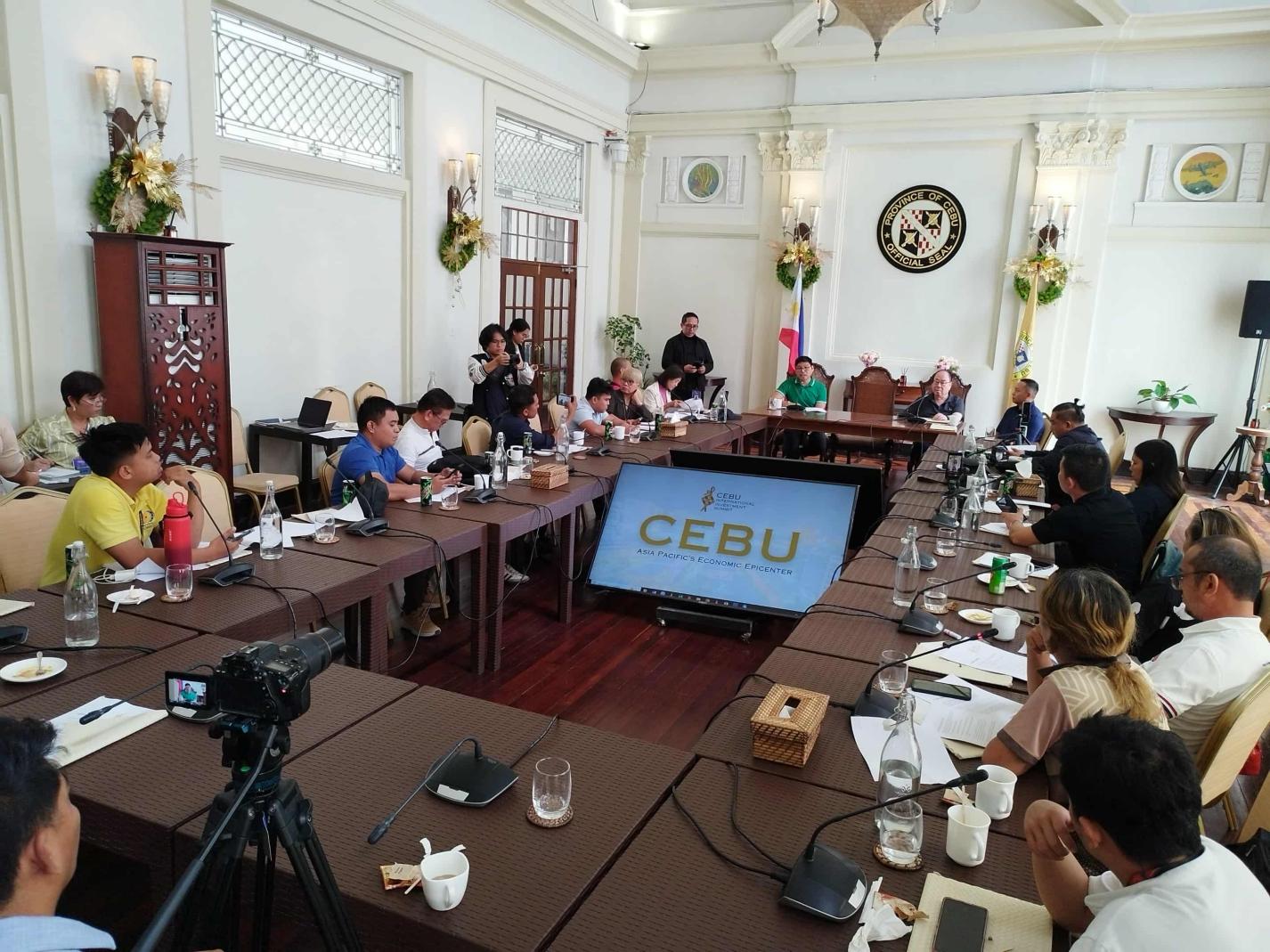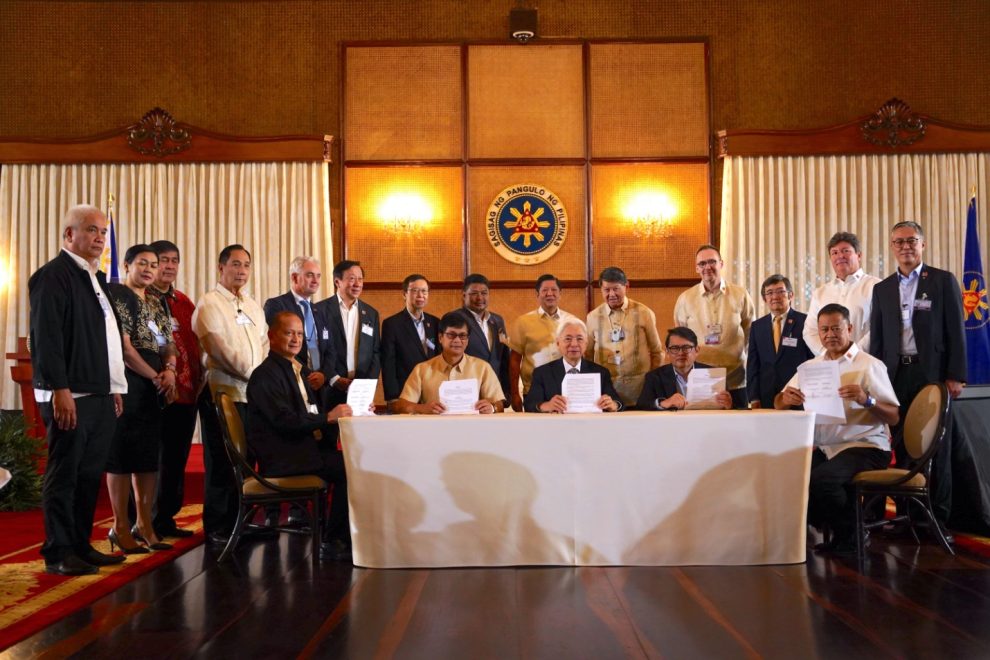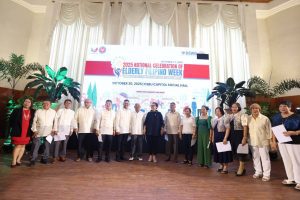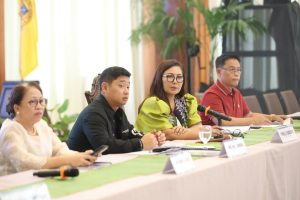Go Negosyo’s Kapatid Angat Lahat Agri Program (KALAP), an initiative to harness the private sector to help small farmers across the Philippines, was formalized with the signing of Memorandums of Agreement and Memorandums of Understanding with several government agencies last March 6 at the Ceremonial Hall of Malacanang Palace. The event commences what is seen as an effort to transform the country’s agriculture industry by integrating small farmers into the value chain of large agribusiness companies.
The ceremonial signing was led by Go Negosyo founder Joey Concepcion, and was witnessed by President Ferdinand Marcos Jr..
In his speech, the President said that the role of the big corporations must be recognized in spurring the growth of small farmers. ”No one sector can manage it by itself,” he said. Private sector help, he said, will “enable MSMEs to become profitable, sustainable, and globally competitive.” He also emphasized the importance of giving back profit to the farmers. “in the end, this is about giving a decent living to our farmers, so they can live by the virtue of their hard work,” he said.
Among the signatories for the MOAs and Memorandums of Understanding were Go Negosyo, the Department of Agriculture, Department of the Interior and Local Government, Department of Environment and Natural Resources, the Department of Trade and Industry, the National Commission on Indigenous Peoples, the National Irrigation Administration, Philippine Coconut Authority, and the National Tobacco Administration.
Concepcion explained that KALAP is where agriculture meets job creation. “It is the platform where we hope to employ as many Filipinos as possible, and it will do so where our job creation efforts can have the most impact: in the agriculture sector,” he said.
According to its proponents, which includes former Agriculture Secretary and now KALAP senior adviser Dr. William Dar, KALAP aims to promote inclusive growth, sustainability, competitiveness, and development in the Philippines by leveraging the potential of MSMEs, small-holder farmers, and fisherfolk.
KALAP will focus on primary agricultural commodities and industries, namely rice, coconut, tobacco, coffee, cacao, sugarcane and corn/feeds/livestock. Following Go Negosyo’s advocacy, KALAP aims to provide MSMEs access to the three M’s that are necessary for entrepreneurship to succeed, namely mentorship, access to money, and market.
KALAP aims to do this in partnership with large companies or businesses (referred to as “big brother” companies), and emphasizes the participation of government to provide the enabling environment to form a collaborative whole-of-nation approach.
KALAP is part of the larger Kapatid Angat Lahat initiative, which was first conceived by Go Negosyo in 2016. Some of the biggest companies in the Philippines and most of the largest business organizations have pledged for Kapatid Angat Lahat, and renewed their commitment at the MSME Summit in August last year.
During the ceremonial signing of KALAP, Lionheart Farms CEO and co-Founder Christian Eyde Moeller presented his model for sustainable transformation for KALAP, which included focusing on productivity and upskilling farmers, as well as improving both income and output.
Lionheart Farms has successfully implemented its inclusive model in coconut farming in Palawan. Ninety-eight-year old Maman Buano Layom–one of the farmers who benefited from its model–was present at the Ceremonial Signing. Mr. Layom was a former kaingin farmer and a member of the indigenous Tau’t Bato community of Palawan.
Inclusive and sustainable models have been implemented by other companies, such as Universal Leaf Phils. in Ilocos. The company is among the first to become big-brother companies, along with SL Agritech, Bounty Fresh, The LT Group, Yovel East Research Devt. Corp., Kennemer Foods, Nestlé, Central Azucarera de Tarlac, and Metro Pacific Agroventures.
“KALAP is public-private partnership at work, and perhaps the most important PPP that we will undertake,” said Concepcion.
According to the Philippine Statistics Authority’s December Labor Force Survey as of December 2022, the agriculture sector accounts for nearly a quarter of the total number of jobs, or 11.76 million, in the Philippines. The DTI meanwhile, estimates that MSMEs generate as much as 65 percent of jobs.
“It is in agriculture that we find a large number of the micro entrepreneurs – the micro farmers, and it is they who need the most help. It is in this sector where a multiplier effect of jobs and enterprises, growth in communities away from the urban centers, can happen,” said Concepcion.












